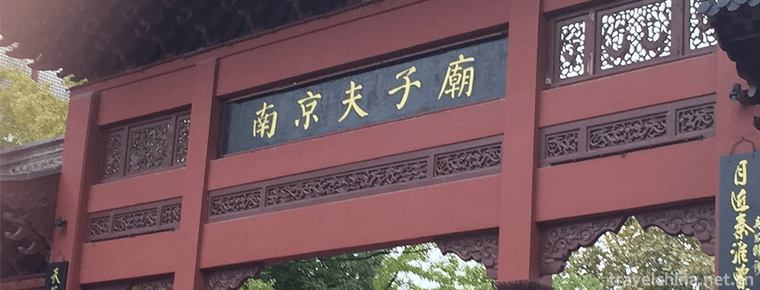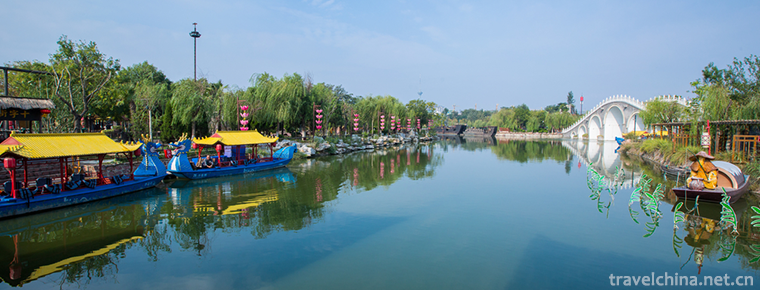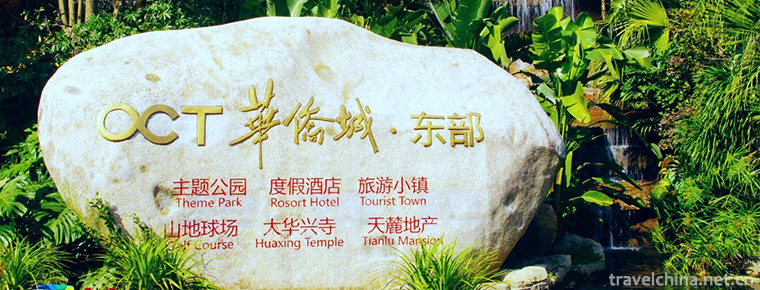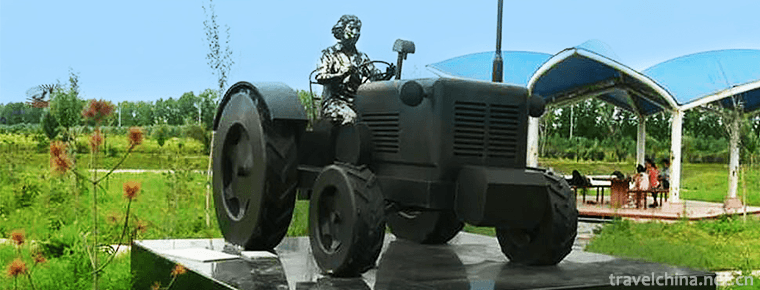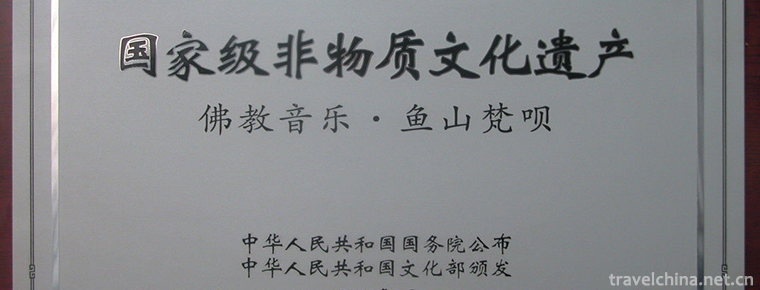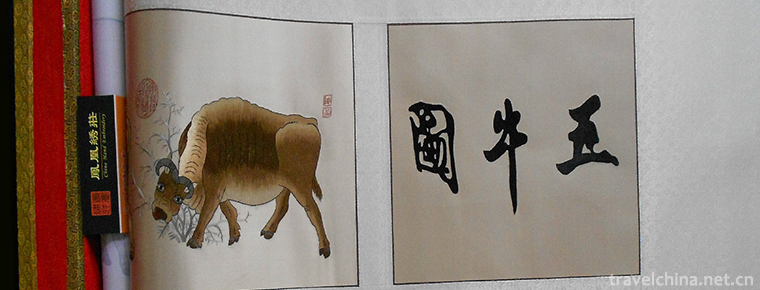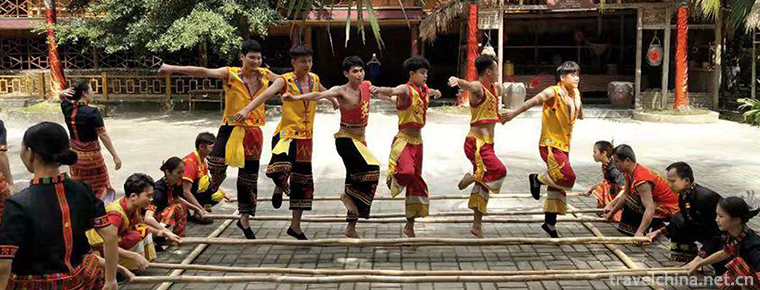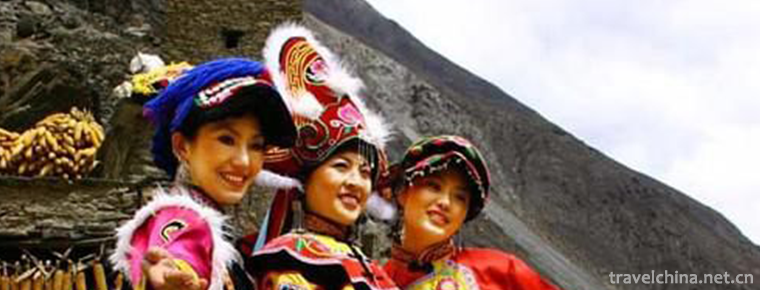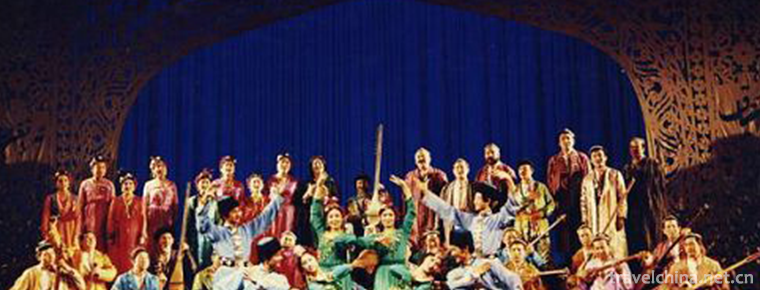Hit City drama
Hit City drama
Dacheng Opera, a local traditional drama in Quanzhou City, Fujian Province, is one of the national intangible cultural heritage.
Dacheng opera is also called magic opera, monk opera and Taoist opera. Popular in Quanzhou, Pujiang, Nan'an, Longhai, Naozhou and Xiamen, Tong'an and other areas in southern Fujian, it is a local opera with obvious religious characteristics developed from the ritual of monks and Daupudu surpassing the dead since the Song and Yuan Dynasties. The ceremony of "beating the city" is usually held on the last day when monks and Taoists pay homage to the dead and do meritorious deeds, which is called "beating the table". Later, it developed to "hit the city on the ground". Later, in order to meet the needs of law, we added some short ghost programs, jumped out of the circle of religious ceremonies, and began to perform on folk funerals, Mongland pot meetings and water and land dumplings. The art of Dacheng Opera is nurtured by Quanzhou folk art, especially the puppet show with strings. Early music, singing white and Kebu, with a strong puppet show performance style. Affected by Peking Opera, martial arts performances of Peking Opera were mostly used in the later stage of Wuxi opera, while literary opera absorbed some scientific steps of Liyuan Opera and Gaojia Opera to enrich itself.
On June 7, 2008, Dacheng Opera was approved by the State Council of the People's Republic of China to be included in the second batch of national intangible cultural heritage lists with the heritage number IV-114.
historical origin
When Taoists in Quanzhou do things, there is a ritual called beating "Paradise City". That is, Taoists wear Taoist robes, hold handheld instruments, perform "King Bajiao inspects the city of the dead" and release the ghosts of the dead. Buddhist monks, on the other hand, wear robes and magic instruments to perform "the King of Tibet opens the door of ghosts" and release innocent ghosts, commonly known as "beating the dungeon". Both religious ceremonies are held in monasteries or squares, and juggling performances such as stilts walking, knife mountain crossing and table jumping are performed to attract audiences. Subsequently, due to the need of law, the performances of short storyline programs such as White Ape Rescue Sutra, Dungeon Town and Double Choice, selected from the Buddhist Sutra "Mulian Rescue Mother", are mainly composed of Buddhist tunes and Taoist sentiments, with Buddhist wooden fish, clappers, Taoist gongs and cymbals as the main musical instruments.
During the reign of Qingdaoguang (1821-1850), the performance of "Dacheng" began to break through simple religious rituals and take to the open-air stage of urban and rural areas. In the ten years of Xianfeng in the Qing Dynasty (1860), Wu Yongliao and Wu Yongyin brothers in Xingyuan, Jinjiang County formed Dacheng Opera Troupe to perform in Jinjiang, Nan'an, Tong'an, Xiamen and Jinmen. In the thirteenth year of Tongzhi reign of the Qing Dynasty (1874), two Dutch people in Xiamen watched Dacheng opera "Li Shimin Wandifu", "Liu Quanjin Guaguo", "Zhuangzi Opera Wife", "Mulian Save Mother", "Three Kingdoms", "Chuhan" and "Journey to the West". Lin Shu recorded in the funeral of Quanjun people in his book The Story of Fear of Luxury and Triviality: "... At the end of ritual repentance, monks sang for the play "Mulian Saves Mother" in Heli Garden. Until dawn, they were called monk's opera, which was unheard of by others. Therefore, Dacheng opera is also called monk opera, Taoist opera and magic opera.
In the eleventh year of Guangxu in Qing Dynasty (1885), Xiao Xingyuan Class in Jinjiang County had a considerable scale, and had a number of performing talents, such as Lao Sheng Wu Yuanming, Wu Rupu, Wu Sheng Wuyuan Tea, Wu Yuantao, Danjiao Wu Chaos, Xiao Sheng Wu Chuanjia, and so on. Wu Yuanming starred in the roles of Li Shimin and Liu Quan, and his acting skills were well-known in southern Fujian.
During the seventeenth year of Guangxu (1891), the monks of Kaiyuan Temple in Quanzhou, Chao Dun and Yuanming, jointly bought their own costumes and props, invited Taoists and "Fragrant Flower Monks" (meat-eating monks), organized semi-professional theatres called "Dakaiyuan". They successively hired puppet artists such as Lu Xida, Lin Runze and Chen Dangui to teach "Huiyuan Bridge" in the repertoire of "Mulian Save Mother". Fu Xiangsheng Tian, Trial Thunder and other small fold operas, and in the original Buddhist tune, Daoist tone, absorbing puppet opera tune, performing Kebu also imitates puppet opera action. At the same time, it absorbs the music cards and accompaniment instruments of Liyuan Opera and Gaojia Opera, especially a large number of traditional operas and martial arts special effects of Beijing Opera, so as to make Dacheng Opera mature.
In the second year of Xuantong in the Qing Dynasty (1910), a group of teenagers were trained in Xiaoxingyuan Class in Jinjiang to perform a series of dramas including Wu Zhenren's Receiving the Dragon and Zheng Chenggong. With the development of Dacheng Opera, Quanzhou Class Master Chao Dun and Yuanming began to organize classes independently. Chao Dun presided over the "Big Kaiyuan" class and Yuanming set up another "Small Kaiyuan" class. The group grew from more than 10 people to more than 40 people, and changed from a semi-professional nature to a professional one.
The real formation of the Dacheng Opera Troupe was in 1905. In order to solicit magic, monks Chao Dun and Yuanming of Kaiyuan Temple in Quanzhou jointly purchased first-hand props. They took Taoists as basic actors and absorbed "fragrant flower monks" (meat eaters) to participate. Quanzhou puppet performers were invited to teach the whole set of Mulian Opera, forming a semi-professional theatre called "Dakaiyuan Class". The music of puppet opera is absorbed as performance music and is moved onto the stage by the square. Shortly afterwards, Yuanming and Chao Du, the masters of the theatre, separated into groups. Chao Dun still presides over the "Big Kaiyuan Class" and the "Small Kaiyuan Class" organized by Yuanming separately. In 1902, a Taoist monk who acted concurrently in Xiao Xingyuan Village of Jinjiang County organized a "Xiao Xingyuan Class". "Xiao Xingyuan" is active in Jinjiang, Shishi, Dongshi and Yinglin, and its class leader is Taoist, so it is commonly known as "Taoist opera"; while "Xiao Kaiyuan" is popular in Quanzhou, Huian, Nanan and Jinjiang and other places, because its class leader is monk, so it is called "monk opera". After the founding of the People's Republic of China, it was called Dacheng Opera.
During the War of Resistance Against Japan, Xiamen and other places fell to the enemy, which attracted artists to disperse and gradually declined. It was not until 1949 that they recovered. Xiao Xingyuan Class and Xiao Kaiyuan Class broke up because the actors were arrested. After the victory of the Anti-Japanese War, the small Kaiyuan class resumed. In the 36 years of the Republic of China (1947), Hongjinshui, Qingyang Town, Jinjiang, set up the "Dragon Chapter Class" and Honglai Town, Nan'an County, set up the amateur drama club of Dacheng Opera. Dacheng Opera was further developed, with "Xiao Xingyuan Class" and "Xiao Kaiyuan Class" as the most famous, and the two classes often competed against Taiwan.
After the founding of the People's Republic of China, more than 30 social artists in the former "Xiao Xingyuan" and "Xiao Kaiyuan" classes scattered in the society organized the Quanzhou Quanyin Technical Theatre Troupe in 1952, renamed the Quanzhou Xiao Kaiyuan Theatre Troupe in 1957 and the Quanzhou Dacheng Theatre Troupe in 1960. The troupe has arranged, adapted and created a number of new plays, such as Shaolin Temple, Flame Mountain, Lv Siniang, Zheng Cheng, Li Zhuo Wu, Li Jiuyi, Luoyang Bridge, Three Princesses, Tianluo Girl, Thunder Test, Dragon Palace Borrowing Treasures, Red Boy Receiving and Three Bottomless Caves. The regiment emerged as "the first monkey king in South Fujian" Zeng Huo-cheng and rising stars Wu Tianyi, Huang Yingying and so on.
The 1920s and 1930s witnessed the prosperity of Dacheng Opera. In addition to the Dakaiyuan and Xiaokaiyuan classes in Quanzhou, Xiaoronghua classes were set up in Jinjiang and Xiaoxieyuan classes were set up in Nan'an, which were active in southern Fujian. At this time, Xiao Xingyuan class in Jinjiang was gradually disbanded because some actors went abroad and some of them joined the class of "Big Kaiyuan" in Quanzhou. In the 18th year of the Republic of China (1929), Wu Wansheng, Wu Fenjin and Wu Baocan returned to Jinjiang to invite a joint venture to re-establish the "Xiaoxingyuan Class" and recruited two groups of actors, which lasted until 1949. Because of the disagreement between the two classes, Yuanming left the class in Quanzhou. In the 19th year of the Republic of China (1930), another group of "small Kaiyuan class" was formed to dig out the pillars of "big Kaiyuan class" and disintegrate it. In 1952, Quanzhou organized Quanzhou Quanyin Technical Theatre Troupe, which was renamed Xiaokaiyuan Theatre Troupe in 1957. In 1960, Quanzhou Dacheng Theatre Troupe was established, and a number of new plays were arranged, adapted and created, such as Shaolin Temple, Flame Mountain, Lv Siniang, Zheng Chenggong, Li Zhuo Wu and Li Jiu Me. In 1966, a farewell order was reached. In 1968, Quanzhou Dacheng Theatre Troupe announced its dissolution. From then on, the western tour drama disappeared in southern Fujian.
Until the late 1980s, with the appeal of the masses, the active planning of the veteran artist Wu Tianyi and the support of the relevant cultural departments, Dacheng Opera was finally reorganized in the form of a folk professional theatre troupe in early 1990, which made this unique variety of Fujian Opera Garden blossom again. In January 1991, at the International Symposium on Chinese Southern Opera and Mulian Opera, the Dacheng Theatre Troupe performed the inaugural ceremony for the conference, giving a performance of "Dragon Girl Test Thunder Voice". He also participated in the second and third "Summer of Weiyuan Tower" theatre exhibitions in Quanzhou and the United Nations "Silk Road on the Sea" study of the performance activities of imitating ancient times and offering sacrifices to the sea.
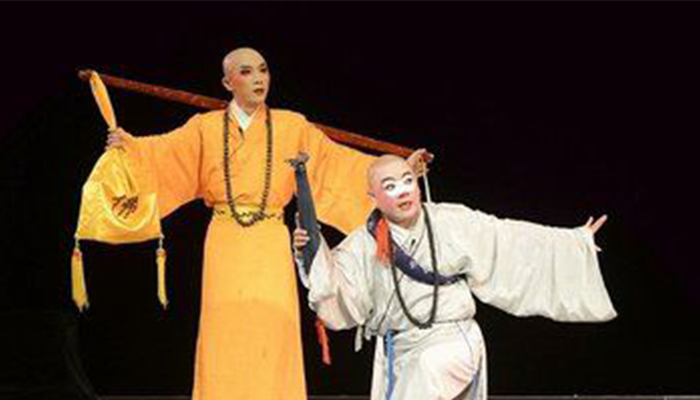
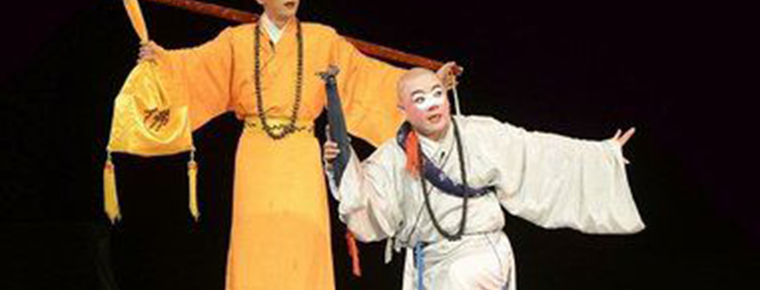
Hit City drama
-
Confucius Temple
Nanjing Confucius Temple is located in Gongyuan Street on the North Bank of Qinhuai River in Qinhuai District of Nanjing City and west of Jiangnan Gongyuan Temple, namely Nanjing Confucius Temple
Views: 224 Time 2018-12-06 -
qingming riverside landscape garden
Qingming Shanghe Garden is a large Song Dynasty cultural theme park constructed by the people's government of Kaifeng City in Henan Province
Views: 293 Time 2018-12-09 -
Shenzhen Overseas Chinese Town Tourist Resort
Shenzhen Overseas Chinese Town, located in the Rhododendron Hill of Shenzhen Overseas Chinese Town, is the latest generation of large theme parks built by the Overseas Chinese Town after the splendid
Views: 149 Time 2018-12-12 -
The Great Northern Wilderness Agricultural Expo
Beidahuang Agricultural Machinery Expo Park is a national AAAA-level tourist attraction located in Youyi County, 50 kilometers away from the city center, covering an area of 350,000 square meters.
Views: 196 Time 2018-12-26 -
Buddhist music
Buddhist music, the music used by Chinese Buddhist temples and believers in religious ceremonies. Buddhism believes that music has the function of "offering" and "praising Buddha".
Views: 106 Time 2019-04-29 -
Beijing embroidery
Beijing embroidery, also known as palace embroidery, is an ancient Chinese traditional embroidery technology, the general name of embroidery products centered on Beijing. Ming and Qing
Views: 325 Time 2019-05-07 -
Li nationality firewood dance
The firewood dance is one of the representative folk dances of the Li nationality. It is called "Turn Brake" and "Taisha" in the Li dialect. It originated from the funeral custom o
Views: 247 Time 2019-05-12 -
Valorafo Festival of the Qiang Nationality
The "Valorafo Festival of the Qiang Nationality", known in Chinese as the "Song Fairy Festival" or "Leading Song Festival" and "Song Invitation Festival", is a
Views: 189 Time 2019-06-10 -
Uygur Daolang Maxi Refu
Maigaiti County is located in the southwest of Xinjiang Uygur Autonomous Region. It is a typical Uygur inhabited area. About 89% of the population is Daolang Uygur who can sing and dance well. Among t
Views: 162 Time 2019-06-26 -
Bozhou University
Bozhou College (Bozhou University), for short, is located in Bo Yuan. Anhui Province Bozhou City By the state Ministry of Education Approved full-time full-time undergraduate institutions.
Views: 171 Time 2019-11-08 -
Baoguang Temple
Baoguang temple is located in Xindu District, Chengdu City, Sichuan Province, China. It is one of the Buddhist temples with a long history, large scale, complete structure and quiet environment.
Views: 134 Time 2020-11-05 -
Neijiang tertiary industry
In 2019, the investment in real estate development in Neijiang City will increase by 2.7% over the previous year. The construction area of commercial housing was 12.4341 million square meters, an increase of 8.9%. The sales area of commercial housing was 4.6939 million square meters, an increase of 8.0%.
Views: 331 Time 2020-12-16
